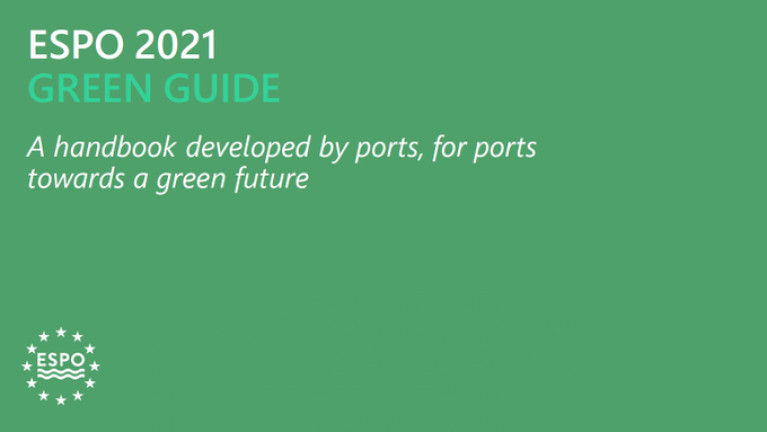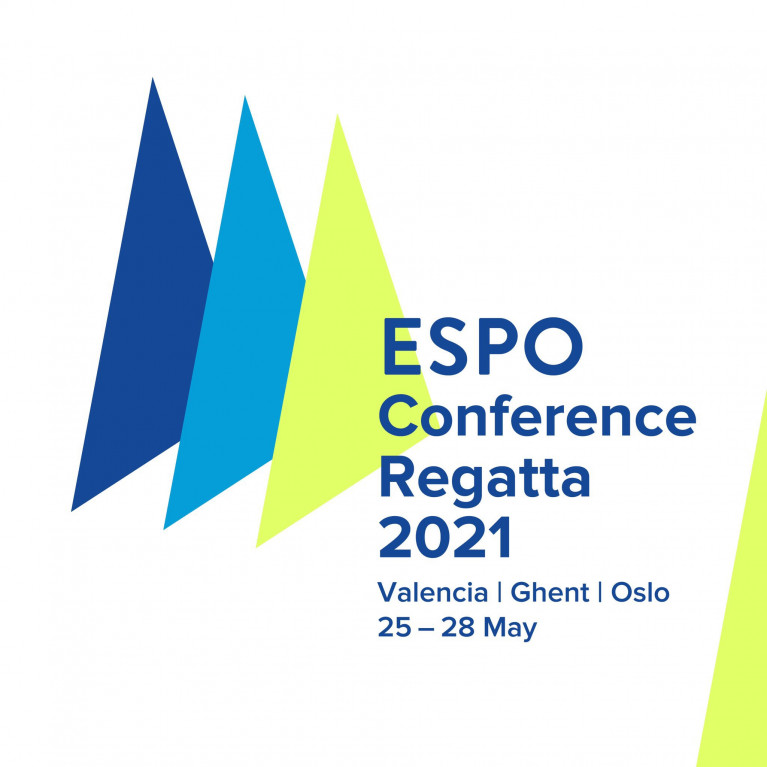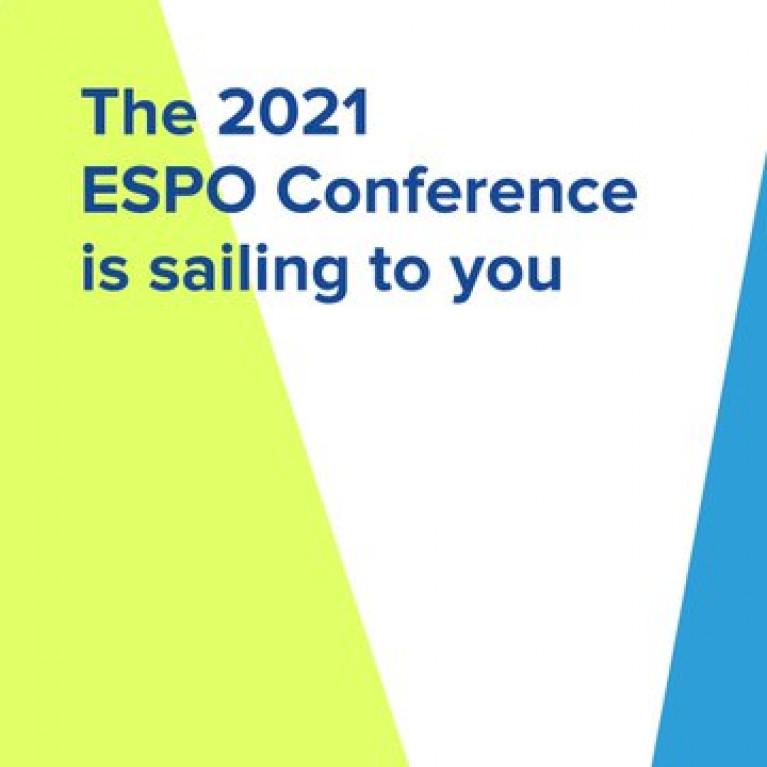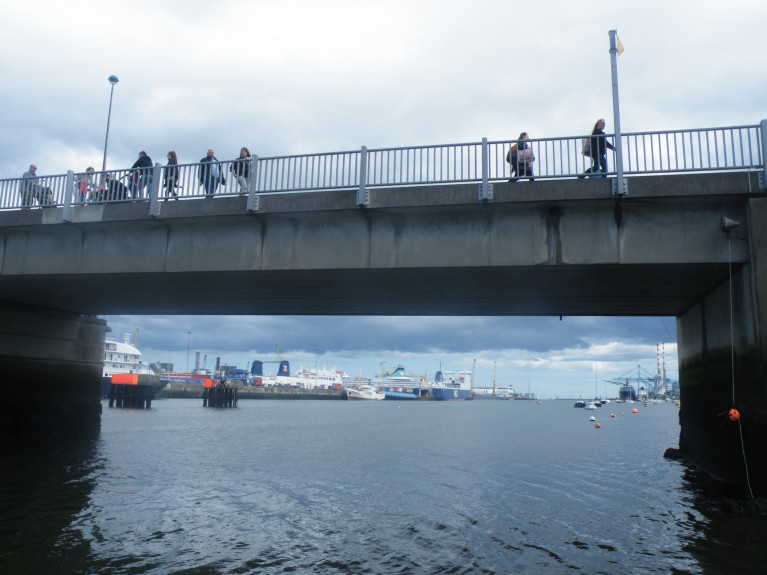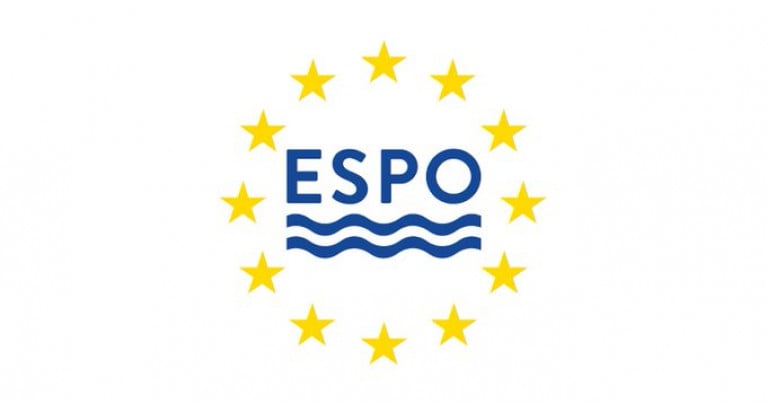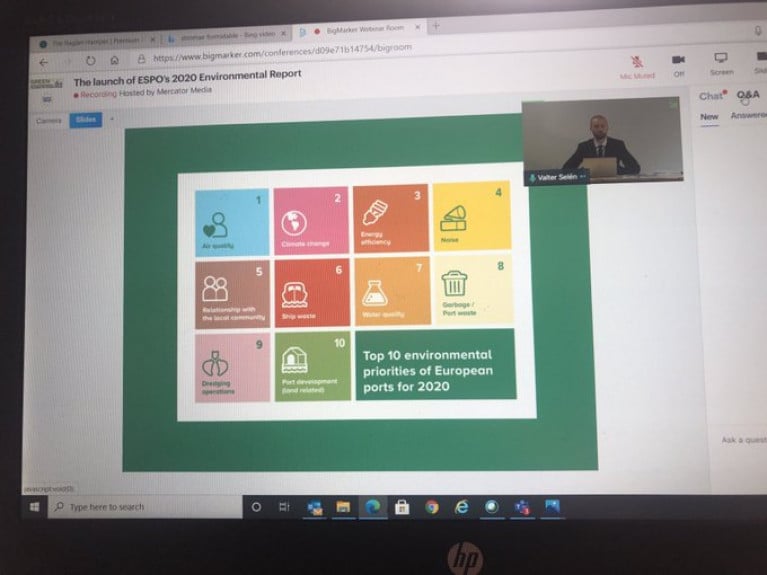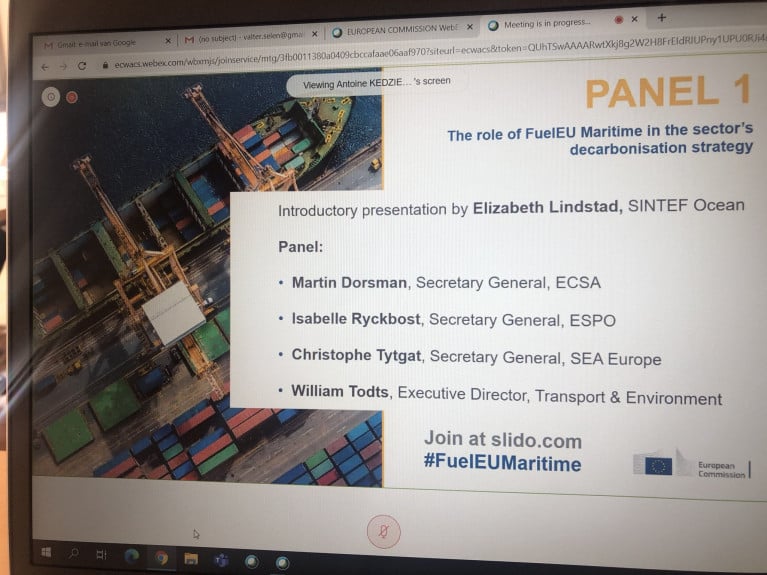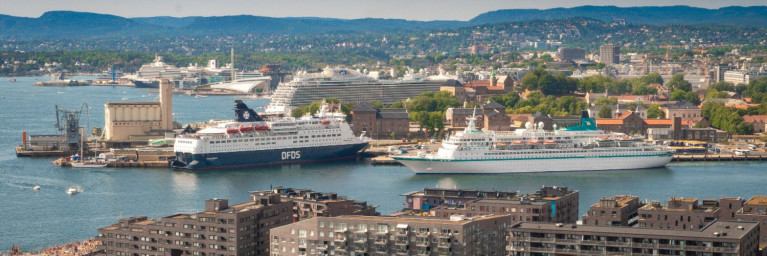Displaying items by tag: ESPO
On the last day of the European Sea Port Organisation's (ESPO) Conference Regatta 2021, today the organisation presented the key components of the forthcoming 2021 Green Guide.
The Guide comes as ports are increasingly undertaking greening efforts, and provides hands-on guidance and advice for ports involved in greening their own activities, whilst outlining how port authorities can help facilitate greening in the wider port area and the local community.
Since its creation in 1993, ESPO has been a driving force behind significant improvements in the field of environmental management. The ESPO Environmental Code of Practice (1994) was the first official ESPO policy document and the first achievement of the organisation. The Code was then updated in 2003 and 2012, with the latest update to be published by the summer of this year.
The development of the Green Guide, together with the bottom-up work realised in the EcoPorts Network, provides the cornerstone of ESPO’s efforts to assist its members in excelling further in environmental management and performance.
ESPO Secretary General Isabelle Ryckbost comments: “Ports in Europe all have greening on top of their agenda, whatever their size, the market they serve, their geographical situation or their governance. Over the last decade both the ports and the environmental context have changed. With this 2021 Green Guide we respond to these changes and aim to guide ports on their journey towards a greener future, each at their pace and with their tools, but all with the same level of ambition. Europe’s ports want to contribute to a decarbonised and sustainable European economy and society both by mitigating externalities and actively offering solutions for the wider economy and environment.”
Ports will increasingly be asked to address unfamiliar and novel issues as part of the transition to a greener future. Exchanging experiences, identifying good practices, and learning from each other is more important to ports than it has ever before. The ESPO 2021 Green Guide was created to help address these issues, and provides a handbook developed by ports, for ports towards a green future.
Even if the main and primary goal of the Green Guide is to assist Europe’s port authorities in realising their environmental and climate agendas and ambitions, the Guide also gives policymakers, local communities and stakeholders unique insight into the ambitions of ports. In addition to the guide, a dedicated database of good green practices in European ports has been developed and is available here.
Commenting on the Green Good Practices database, ESPO Senior Policy advisor Valter Selén states: “Together with our dedicated membership, we have gathered over 60 good practices from port authorities in one publicly available database, adding a new element to the ESPO Green Guide. The database demonstrates the ongoing greening efforts undertaken by port authorities, and provides another tool whereby ports can encourage and promote further greening efforts through sharing experiences and good practices.”
The ESPO Green Guide is divided into three parts.
Part I explains the approach of the ESPO Green Guide 2021 by outlining the competences of port authorities and the scope of the greening activities. Understanding the governance and competence of port managing bodies is essential for ports when preparing their pathway to a green future, and when assessing which tools to use. It also helps other port stakeholders and policy makers better understand the port’s greening pathway.
Part II provides a “manual” for greening the port. The ESPO Green Guide 2021 outlines a common vision of the role of port authorities in contributing to a European green future. It puts forward ambitions on how port authorities will move forward to 2050 and beyond, leaving it up to each individual port authority to define, through their roadmap, the steps needed to achieve their defined objectives. Part II identifies a series of tools at the disposal of port authorities. Finally, this Guide comes with an extensive dedicated database of green practices provided by European ports (available here).
Part III showcases how ports engage not only in the mitigation of pollution, but also strive to positively contribute to greening the European economy, acting as an important partner in achieving the energy and green transition.
The dedicated database of green practices can be consulted on the ESPO website.
The new ESPO Green Guide 2021 will be shortly publicly available.
Next month the European Sea Ports Organisation (ESPO) Conference (25-26 May) will be sailing towards you from the south to the north of Europe.
The ESPO Conference Regatta 2021 will be starting in the Port of Valencia on 25 May, from there it will sail off to North Sea Port on 26 May and finish in the Port of Oslo on 28 May, our last port of call.
The theme of the ESPO Conference Regatta 2021 is “Europe’s ports at the crossroads of transitions”. Together with the port industry, businesses, academics and, last but not least, EU policy makers, we will be discussing the future of Europe’s ports as driving forces of a strong and resilient European economy and society.
You can now register for this unique event. Given the restrictions resulting from the pandemic, the Conference Regatta 2021 is planned as an online event. It will be an insightful and interesting event that will go beyond a traditional webinar. If the situation improves enough to allow it, the three hosting ports will do their utmost to set up a limited in-person attendance and/or in-person networking event.
Register here and Stay tuned!
You can choose to register for the whole conference or just a part of it. Please note that we have exceptionally interesting rates and we encourage you to benefit from the “family” rate, which gives you a special discount when five or more people from your company or organisation are joining the ESPO event.
“This 17th edition of the ESPO Conference will not only be unique in format, but also in content. The world is going through a severe health and economic crisis never seen before. At the same time, the green and digital transitions mean a major transformation of our economy and society. This is probably the perfect storm for Europe’s ports and port industry. Being at the crossroads of transitions, Europe’s ports can play a crucial role in preparing Europe’s economy and society for a strong and resilient future. At the Conference Regatta, we will be touching on all of these game changers and are aiming to offer a unique platform for exchange of views and solutions. We cannot offer you a fully-fledged ESPO Conference, but I promise you, this will be more than a webinar”, says Isabelle Ryckbost, ESPO Secretary General.
The programme of the ESPO Conference Regatta 2021 already features a series of high-level and off-the-beaten-track confirmed speakers. And more is yet to come!
The programme and all practical information are available on the conference website. Together with its three fantastic host ports, ESPO will take you on trip through Europe without you leaving your seat.
Book now and be part of this unique ESPO Conference edition!
This year's European Sea Port Organisation's annual Conference will differ as the format involves a 'Regatta' crossing Europe from South to North.
The Conference Regatta sets sail in the Port of Valencia on Tuesday 25 May. From there onwards it sails off to Ghent, where we will be welcomed by our second host, North Sea Port, on Wednesday 26 May.
Our last port of call will be the Port of Oslo, where we race to the finish line on Friday 28 May.
The draft programme and all practical information are now available on the conference website. Together with its three fantastic host ports, ESPO is developing a special format which offers a hybrid formula, consisting of virtual and in-person attendance. ESPO invites you to pre-register now to be sure you are part of this exceptional event.
“We are happy to be able to present you a unique format for this 17th edition of the ESPO Conference. With the active support of our three hosts, Port of Valencia, North Sea Port and Port of Oslo, we have developed a format which will allow everybody to attend at least virtually and , by “sailing” around, we hope to be able to open for in-person attendance in the three venues. Both in content and in format we guarantee an exceptional event. Even for virtual participants, I promise, this won’t be just a webinar. We look forward to welcome both our loyal guests and newcomers to this annual highlight of the European port industry,” says ESPO’s Secretary General Isabelle Ryckbost.
The theme of the ESPO Conference Regatta 2021 is “Europe’s ports at the crossroads of transitions”.
After a year of disruption, Europe is preparing for a green recovery, a plan that aims at combining the need to recover with the delivery of the Green Deal, Europe’s flagship project to become the world’s first net-zero emission area by 2050. At the same time, Europe’s economy is getting ready for a digital future. Being at the centre of different strategies, Europe’s ports can be a partner in building a stronger and better Europe. They can develop towards becoming real engines of growth and green post-COVID recovery. What do ports have to offer? Which tools and policy ingredients are needed to boost this development? How to engage all partners in the port ecosystem?
On Tuesday 25 May, the first Conference day, after a welcome by the Commissioner for Transport Adina-Ioana Vălean, the ESPO Conference Regatta will set sail with an impressive line-up of inspirational speeches and presentations exploring both the future of Europe and the future of Europe’s ports. The presentation of the joint Deloitte-ESPO study on the changing role of European ports is another highlight of day one. Based on extensive exchanges with Europe’s ports, this study will identify drivers and trends which explain the changing role of Europe’s ports. The presentation of the study will be followed by a high-level debate with ports and stakeholders.
On Wednesday 26 May, the second Conference day, it is time to discuss politics! We will welcome a series of high-level EU policymakers from the European Investment Bank, the European Commission and the European Parliament. Topics of discussion will be Europe’s Recovery and Resilience policy, the review of the Trans-European Transport policy, the Green Deal and Europe’s mobility strategy. This second day of the ESPO Regatta will end with a debate on hydrogen: is it just a hype or a real breakthrough in the whole Green Deal delivery?
On Friday 28 May, the final day of the ESPO Conference Regatta, the green deal and sustainability are both on the agenda. We will depart from the Norwegian know-how and experience to discuss how ports can become key players in future zero emission logistics chains and how to green the shipping sector. We will also debate zero pollution ports with stakeholders and experts from all around Europe. In Oslo, ESPO will also present its new Green Guide giving guidance to Europe’s ports on how to contribute to a green future.
So reasons enough to join us for this special ESPO Conference Regatta and to fill in the pre-registration form now! The ESPO Conference Regatta 2021 comes with exceptionally interesting registration fees, including a family rate for 5+ attendees from one company or port. By pre-registering and indicating your interest now in this ESPO Conference Regatta 2021, you help us in getting the challenging logistics of this exceptional format right.
The official registrations will open as from 10 April. You will then be able to confirm/adapt your registration by providing us more details concerning your attendance.
For more information and the full programme, click here.
ESPO Award to Reward Ports for Contribution to Recovery & Prosperity of Local Community
This year's European Sea Ports Organisation Award will go to the port managing body that proves to play a special role in the recovery and prosperity of the city and local community.
The ESPO Award on Social Integration of Ports is entering its 13th edition, with the theme “Role of ports in the recovery of the city and the local community”.
Europe’s ports have been playing a critical and essential role for society and the economy during the COVID-19 pandemic by remaining open and operational throughout the whole crisis. They have been key in ensuring that goods could continue to reach consumers and industries. They have showed the best of themselves and continue to do so. Europe’s ports are playing an equally important role in the recovery of Europe and are crucial to bringing back prosperity for the city and the local community.
The ESPO Award 2021 will go to the port managing body that succeeds best in playing a role in the recovery from the current crisis and in contributing to enhancing the prosperity of the city, local community and region.
The winning port will demonstrate to what extent its focus and activities are essential for the recovery of the surrounding city and local community and which successful steps it is taking to assist in the social, cultural and economic recovery and prosperity of the city, local community and region.
Project submissions have to reach the ESPO Secretariat by Thursday 1 July 2021 at the latest. The application form and the terms of reference are available on the ESPO website, noting Afloat adds the organisation's annual conference takes place the previous month.
The award will be officially handed out during an Award Ceremony and Dinner, which will take place in Brussels on November 2021.
About the ESPO Award
The ESPO Award was established in 2009 to promote innovative projects of port authorities that improve social integration of ports, especially with the city or wider community in which they are located. In this way, the Award aims to stimulate the sustainable development of European ports and their cities.
Last year the Algeciras Port Authority won the award which was held in a digital way given the health restrictions related to COVID-19. Among the other winners were Dublin Port (2015), Port of Antwerp (2013) and the Port of Gijón in 2009, the inaugural year of the award.
Women participating in the European Sea Ports Organisation committees has increased in 2020 compared to the last two years, when ESPO started monitoring the gender balance of its internal meetings.
Taking all technical committees together, women represent 35,10% of the port professionals who attended ESPO meetings in 2020. This shows an overall increase of 4% compared to 2019 and 2018.
A closer analysis of the results of the different technical committees reveals that all committees have seen an increase in the share of women attending the meetings in 2020, with the exception of the Executive Committee, which saw a decline of only 2%. The Port Governance Committee, the Sustainable Development Committee and the Cruise and Ferry Port Network all had an almost equal representation of men and women at their meetings. The Blue Growth Network, which was set up in 2019, registered 59% of women attending the meetings, the highest number of all the technical committees. The newly set-up Energy Network, as well as the General Assembly and Executive Committee, gathered on average one third of women at their meetings (30%, 27%, and 34%, respectively). Women made up a quarter of port professionals attending the meetings of the Economic Analysis and Statistics Committee (25%) and the Intermodal, Logistics & Industry Committee (24%) last year.
In November 2020, the General Assembly of ESPO elected Annaleena Mäkilä, Managing Director, CEO of the Finnish Port Association, as Chair of ESPO. As Afloat reported last year, she became the first woman to chair the organisation.
The ESPO secretariat office counts more women than men (5 to 4).
Annaleena Mäkilä, ESPO Chair “In 2017, the Commission put the finger on the low percentage of women active in the transport sector. We then decided to monitor and report on the the proportion of women among the port professionals attending the different ESPO meetings. It is good to see that in most committees there is a positive development. This positive development is also reflected in the number of female chairs in ESPO. Besides our newly elected Chair, 4 committees are now chaired by a woman,” concludes Isabelle Ryckbost, Secretary General ESPO.
Since 2018, ESPO has been monitoring the gender balance through the effective attendance of port professionals to the different meetings of the organisation. The results of this monitoring are published each year on the occasion of the International Women’s Day. ESPO is also one of the founding members of the European Commission’s initiative “Women in Transport – EU Platform for change”, launched in 2017.
ESPO Launch "Transport for EU Recovery" to Keep Transport Going Forward
The European Sea Ports Organisation (ESPO) with the slogan “Transport for EU Recovery” has issued a Statement on the Recovery and Resilience Facility. The statement was issued along with a further 31 other organisations.
“The transport and logistics sectors play a critical and essential role in keeping the supply chains and the economy going. A state-of-the-art, sustainable and efficient transport network is also the backbone of a European Recovery. We really hope that the Member States will put the transport and logistics investments high on the list in their national recovery plans. Speaking from a seaports’ perspective, we call on the national governments to recognise seaports in all their aspects and to recognise their potential as real engines of growth and recovery,” comments Isabelle Ryckbost, ESPO Secretary General.
On 9 February, the European Parliament endorsed the agreement on the Proposal for a Regulation establishing a Recovery and Resilience Facility (RRF). With a budget of EUR 672.5 billion, the RRF is the EU’s main instrument to recover from the crisis caused by COVID-19.
While being hit hard by the pandemic and the various restrictive measures, the transport sector has demonstrated its crucial role in the supply of goods and and movement of people and has thus proven its indispensability for a functioning European Union.
The undersigned European associations representing transport, infrastructure managers, operators, workers in all transport modes and logistics, contractors, local and regional authorities, logistics service providers, shippers, users, shipyards and equipment suppliers in the maritime sector, ports, inland waterways, railways, road, cycling, aviation, airports and intermodal sectors, as well as supporting industries and companies, jointly call on Member States and the European Commission to ensure that the transport sector receives adequate consideration in the National Recovery and Resilience Plans:
- Emphasize that the transport and logistics sectors are critical for providing EU citizens with the goods and the mobility that are essential for their health and well-being and will be major enablers to a sustainable and resilient recovery of Europe’s economy;
- Reiterate that the European Green Deal calls for a 90% reduction in greenhouse gas emissions from transport, which requires substantial investments in transport infrastructures and fleets;
- Stress that the objectives of the Green Deal for Europe to become a climate-neutral economy by 2050, can only be obtained by increasing the sustainability of the transport sector; note that the budget of the Connecting Europe Facility II is not sufficient to enable the necessary transformation;
- Call on the Member States to put forward in their recovery and resilience plans measures facilitating economically and socially sustainable transport and digitalisation in the transport and logistics sectors, measures promoting cohesion and connectivity, promoting livable cities and regions, supporting just transition, support strategies for more diversified sustainable supply chains in view of strengthening Europe’s resilience as well as measures preparing the transport workforce for the digital transformation based on an inclusive social dialogue
- Call on the European Commission to evaluate the prominence of economically and socially sustainable transport measures in their assessment of the National Recovery and Resilience Plans.
Finnish Woman Succeeds Irishman As New Chair of European Sea Ports Organisation (ESPO)
A Finnish woman has unanimously been elected as Chair following a vote of the European Sea Ports Organisation (ESPO)'s General Assembly in Brussels, Belgium today.
Annaleena Mäkilä has been the Managing Director, CEO of the Finnish Ports Association since 2012. She succeeds Eamonn O’Reilly, who chaired the organisation during the last four years. Afloat adds O'Reilly was re-elected as chair of EPSO two years ago whilst also in the role of chief executive of the Dublin Port Company.
The General Assembly also elected Zeno D’Agostino and Daan Schalck as Vice-Chairs of the organisation. Mr D’Agostino, who is currently President of the Port Network Authority of the Eastern Adriatic Sea, starts a second term in that role. Mr Daan Schalck is CEO of North Sea Port.
Upon her election, Mrs Mäkilä said: “I am proud to be elected as Chair of this strong organisation and unique network of port professionals representing the common interests of all European ports. As economic players, ports in Europe will be facing challenging times. In this rapidly changing world, ports will need to readily respond to sudden changes and challenges.
“During the current crisis, ports have proven to be agile and resilient. Europe’s ports are in a unique position to play a positive role in achieving Europe’s ambitions for a Green Recovery. Being at the centre of different strategies, ports need a policy framework that allows them to play their role in line with the European goals.
"I look forward to working with the ESPO team, all ESPO members, as well as with Zeno and Daan in further promoting the importance of ports as engines of growth and recovery and defending our industry’s interests in Brussels.”
Another notable event today saw ESPO publish its Annual Report 2019-2020 as Afloat previously reported.The report outlines the activities of the organisation over the past year. A copy of the report can be found here.
At 6 pm (CET) today, ESPO will disclose the winner of the ESPO Award 2020 on Societal integration. Adina Vălean, European Transport Commissioner, will announce the winner in a dedicated virtual ceremony.
ESPO Publish '2020 Environmental Report' for Europe's Port Sector
The European Sea Ports Organisation (ESPO) presented its fifth annual Environmental Report during a dedicated Webinar held today.
The ESPO Environmental Report 2020 includes more than 60 different environmental performance benchmarks, such as the Top 10 Environmental Priorities of the European ports, and figures on the green services to shipping (shore-side electricity, LNG and environmentally differentiated port dues).
Air quality continues to be the top environmental priority for ports, as air quality has become a key determinant of sustainable port activity and ports’ license to operate. Climate change has become the second top priority of ports in 2020, having entered the Top 10 environmental priorities for the first time in 2017.
In 2020, seven out of ten European ports take climate change into consideration when they develop new infrastructure projects. The threat posed by climate change is demonstrated by the fact that 65% of European ports have taken steps to strengthen the climate resilience of existing infrastructure, and over half of surveyed ports have already dealt with operational challenges due to climate change. Energy efficiency (formerly referred to as energy consumption) is the third top priority after air quality and climate change.
Noise remains an important priority for ports, as they are continuing to take steps to avoid or decrease noise pollution from port activities. The relationship with the local community, which is of outmost importance for ports, remains a high priority coming in fifth place this year. In 2020, ports have continued their efforts to ensure that ports are more transparent, involved, and accountable to local communities. Close to all (91%) of participating ports communicate their environmental policy to all relevant stakeholders, and 86% of them makes it publicly available on their website.
With regard to the green services to shipping, a growing share of ports are offering shore-side electricity for ships at berth (OPS) in 2020, with 58% of sampled ports providing this service in 2020. It is important to mention, that, out of this total, 46% of these ports provide high voltage electricity which is suitable for seagoing vessels. Notably, 40% of ports are planning to offer OPS in the coming two years.
When it comes to LNG, one third of ports has made LNG bunkering available, LNG being mainly provided by trucks (100%) and by barges (34%). In parallel, 57% of ports provide environmentally differentiated fees for ships that go beyond regulatory standards, with air emissions, waste and climate change being important targets of these discounts.
In addition, around two thirds of European ports are certified with an environmental standard (ISO, EMAS, EcoPorts’ PERS), which is an increase by 11% since 2013. 81% of ports have set up an environmental monitoring program, waste being the most monitored issue.
Aiming to further increase the transparency and accountability of the European port sector and to enhance the relationship of ports with their local communities, ESPO decided to publish the annual Environmental Report of the European port sector starting in 2016. The report provides quality data on ports’ environmental performance and is becoming a point of reference for policy makers and stakeholders, including local communities, civil society, researchers and industry. 97 ports have been participating in this year’s report.
“This year’s ESPO Environmental report shows, that despite the challenging times ports are going through, environmental engagement and support has not been put on hold. The top three environmental priorities do not come as a surprise. It clearly shows what ports are having on their radar. Ports continue to invest in green infrastructure such as shore-side electricity for ships at berth, and have improved their transparency towards European citizens and local communities. We will have to keep an eye on the share of ports certified with an Environmental Management System, which went down slightly. ESPO is therefore committed to continue helping ports demonstrate excellence in environmental management through the EcoPorts PERS certification, which is the only port-specific environmental standard on the market.
I am happy though to see that the sample used for the Annual Report becomes bigger. I would like to encourage all our members to join EcoPorts and make the sample even more comprehensive and representative for all maritime EU Member States,” says ESPO’s Secretary General, Isabelle Ryckbost.
ESPO Calls for FuelEU Maritime that Clearly Sets Out Innovation & Investments in Maritime Sector
Ongoing discussions on the future of FuelEU Maritime Initiative has led the European Sea Ports Organisation (ESPO) to express the commitment of European ports is to play their part in helping the shipping sector decarbonise.
The full ESPO position on the FuelEU Maritime Initiative is available here.
ESPO welcomes Europe’s ambition to be the world’s first net zero emission area by 2050 and believes that the greening of shipping is a priority to deliver on this ambition. It is time to act. Enhancing both the development, uptake, use, and availability of sustainable alternative fuels and technologies is crucial to curb the rising CO2 emissions from shipping.
For Europe’s ports, the best and most effective way forward is a policy which combines clear goals with measures facilitating the uptake of a variety of clean fuels and technologies, overcoming the barriers to the use of sustainable alternative fuels and supporting investments on both the demand and the supply side.
Since there is currently no silver bullet to reduce shipping emissions, Europe’s ports believe that a goal-based and technology-neutral approach is best placed to facilitate the deployment of promising potential technologies and allow for innovation as part of a multifuel future.
To facilitate this approach, ESPO calls for the creation of bottom-up coalitions and framework agreements between all relevant stakeholders in the maritime sector. Relying on a supporting policy framework at the European level, such coalitions would ensure that the alternative fuels infrastructure available in ports is effectively used and that the demand for alternative fuels infrastructure matches the supply. The approach would help achieve economies of scale and overcome potential hurdles to the deployment of alternative fuels infrastructure, which include uncertain demand, high initial investment costs, and slow and uncertain return on investment.
The FuelEU Maritime Initiative will have direct implications for alternative fuel infrastructures and must therefore be compatible and well-aligned with existing legislation, specifically the Alternative Fuels Infrastructure Directive. It will require targeted and effective investments in ports. Individual roadmaps at port level are an important tool for ports to assess what is needed and effective in terms of investments, taking into account the diversity of shipping segments and particular circumstances of the port. Coordinated approaches and solutions between stakeholders at port level and between ports must be stimulated.
The FuelEU maritime initiative should address all ship emissions, both during navigation and at berth. ESPO supports a specific emission reduction target at berth as complementary to the overall emission reduction standard, but this cannot be a way to delay action, or compensate for lacking emission reductions during navigation.
European legislation, including the FuelEU Maritime Initiative, must provide the appropriate financial support to enable the greening of the maritime sector. This must happen through dedicated funds under new and existing instruments for investments in clean fuel infrastructure for shipping, the creation of clean energy hubs in port areas, and clean energy grid connectivity. To further incentivise the use of clean fuels, the review of the Energy Taxation Directive must provide for a permanent and EU-wide tax exemption for all clean fuels and clean sources of energy. Finally, the deployment and use of infrastructures could also be encouraged using revenues generated by forthcoming market-based measures for shipping.
“We welcome the Green Deal ambitions and the proposed EU-wide target of reducing greenhouse gas emissions by at least 55% by 2030. Even if the maritime sector is one of the most energy-efficient modes of transport, this ambitious target will require the shipping sector to take urgent action now in order to significantly reduce emissions. It is now important to find the most effective ways to deliver on these ambitions. There is no time to waste, and given the current economic circumstances, there is no money to waste. We cannot go for investments that simply tick arbitrary boxes through prescriptive goals without ensuring the use and uptake of sustainable alternative fuels. Such an approach will not deliver in terms of emission reductions of the shipping sector. We therefore favour an approach which combines clear goals with a supportive policy for the most promising technologies, which would avoid the risk of creating stranding assets. Such a goal-based approach will provide the basis for bottom-up coalitions between stakeholders. We see such a framework as the best guarantee for delivering the decarbonisation of the maritime sector” comments Isabelle Ryckbost, Secretary General ESPO.
The full ESPO position on the FuelEU Maritime Initiative is available here.
European Sea Ports Organisation Conference Postponed to May 2021 with Venue Still in Norway
The European Sea Ports Organisation (ESPO) regret to inform that they feel obliged to cancel their Conference 2020, which was due to take place in one month in Oslo, Norway.
ESPO commented that this was a tough decision but in view of the current situation of the spread of Covid-19 among Europe and the different travel bans that will probably still be in place in May, in Norway as well as in many other EU Member States.
This being said, we would like to inform you that we will postpone our annual event to 2021, same place, same period! Pin the date in your calendar: 27 – 28 May 2021! With the Port of Oslo, we are really in good hands and we will keep all the good ideas of this year’s edition for 2021 and make it an even stronger version.
Ingvar M. Mathisen, Port Director/CEO of the Port of Oslo said: “ESPO 2020 is postponed, but not cancelled! We were really looking forward to hosting this conference and it is a pity that you will miss all the excellent speakers, but we will be back. We hope to see you all in Oslo next year end of May for an even better programme and networking event for the European ports.”
“We deeply regret that this annual tradition and gathering of European ports and the European port industry cannot take place this year. Since ESPO Conferences must be open and accessible for all ports and port stakeholders from all over Europe, which cannot be guaranteed in the next months, we decided to postpone the event to 2021. Moreover, in most European ports, it is now also all hands on deck to play their critical role in the supply chain and try to overcome this health and economic crisis. So, first things first. We are happy that a new date has been set already and that the Port of Oslo remains our enthusiastic host. We sincerely hope to see all our members, participants and ports back in Oslo in good health. We promise you a Conference edition that counts for two! In the meantime, we wish you all the strength and courage to overcome this difficult period,” said Isabelle Ryckbost, ESPO Secretary General.
For the participants who had already registered for this year’s edition, you can contact Mrs Braekke from the Port of Oslo email: [email protected].
The theme, programme and practical information for next year’s edition will be disseminated in early 2021 through the official conference website.



























